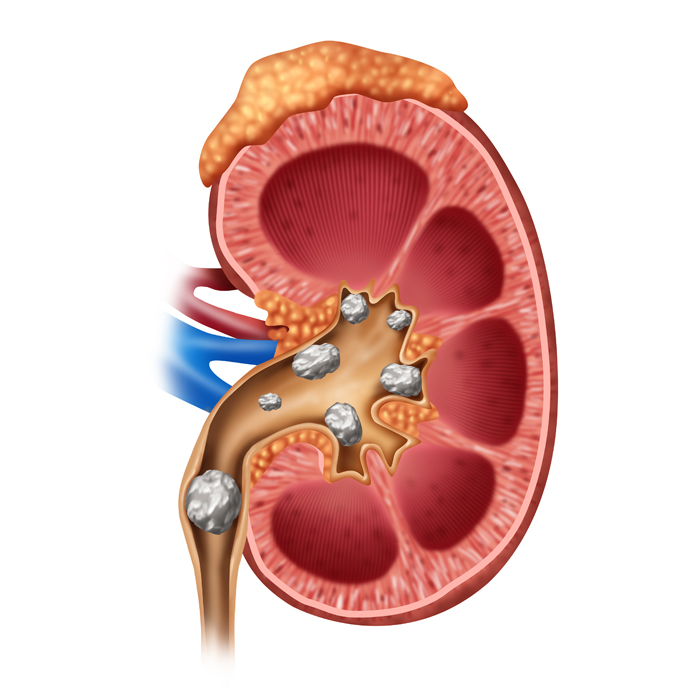Kidney Stones Treatment in MRC Nagar, Chennai
Kidney stones refer to the crystal solids that can form anywhere in your urinary tract. The urinary tract includes
- the kidneys,
- ureters,
- bladder and
- urethra.
Kidney stones cause severe pain. You can search for kidney stone doctors near me or kidney stone specialists near me to seek treatment.

What are the types of kidney stones?
- Calcium stones
- Uric acid stones
- Cystine stones
- Struvite stones
What are the symptoms of kidney stones?
The most common symptom of kidney stones is renal colic or severe pain. This sharp pain can originate in your back or below the ribs. The symptoms of kidney stones take time to develop. Symptoms of kidney stones include:
- Change in urine color (pink, red or brown)
- Blood in the urine
- Nausea
- Vomiting
- Frequent urge to urinate
- Fever
- Chills
- Foul-smelling urine
- Pain with different intensities
- Burning sensation or pain while urinating
What are the causes of kidney stones?
Numerous factors can cause kidney stones. These include:
- Eating a diet high in fructose
- Drinking too little water
- Obesity
- Weight loss surgeries such as gastric bypass surgery
- Consuming foods high in sodium or salt
When do you need to see a doctor?
If you see the symptoms mentioned above, visit a kidney stone hospital in Chennai or seek kidney stone treatment in MRC Nagar.
Request an appointment at Apollo Spectra Hospitals, MRC Nagar, Chennai.
Call 1860 500 2244 to book an appointment.
What are the treatments available for kidney stones?
Some common treatments available for kidney stones include:
- Medication: Your doctor may prescribe narcotic medications to relieve the pain and prevent further stone formation.
- Shock-wave lithotripsy: This treatment method uses sound waves to break stones. When the size of stones reduces, they can pass down quickly and exit your body through urine.
- Ureteroscopy: Sometimes, kidney stones can be bigger in size. Hence, a doctor may remove the stones by using a medical instrument known as a ureteroscope.
- Tunnel surgery or percutaneous nephrolithotomy: Your doctor will make a small cut in your back and remove the stones surgically in this treatment option. Surgery could be an option for treating kidney stones if:
- The stones are too big.
- The stones cannot pass through the body.
- Severe pain that you cannot manage
- The stones start damaging the kidneys.
Conclusion
Kidney stones are a common disease. Increase your intake of water to prevent this. Seek medical consultation if you notice any sharp pain in the back and difficulty in urinating.
Not always. However, having a family history increases your risk of suffering from kidney stones.
Eating foods rich in protein, sugars or salt increases your risk of suffering from kidney stones. Having a balanced diet is the key to minimizing the risk of kidney stones. In addition, increasing your daily fluid intake will also help.
Long-term effects of kidney stones include the risk of developing other diseases. Furthermore, people with kidney stones are at a higher risk of developing chronic kidney disease.
Symptoms
Treatments
Our Top Specialities
NOTICE BOARD
CONTACT US
CONTACT US
 Book Appointment
Book Appointment


.svg)
.svg)
.svg)
.svg)








